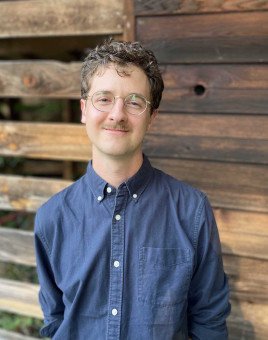
Eli B. Lichtenstein
Visiting Assistant Professor of Philosophy
M 10:15-11:15a & W 11:15a-12:15p
Or by appointment
I view philosophy as both a historical tradition and a reflexive mode for questioning deep-seated beliefs and values. I accordingly teach philosophical texts as situated attempts to articulate and resolve problems that remain deeply pertinent today. My goal is to help students cultivate capacities to reflect critically on self and world with resources from the philosophical past.
My scholarship seeks to explain how we can use history to critique present forms of state and social violence. I argue that genealogical research may become an instrument of emancipation when it is guided by the normative commitments that are immanent to social struggles. My broader research interests lie in 19th and 20th century continental philosophy, critical theory, social and political philosophy, and critical philosophy of race.
When not reading or writing philosophy, I like to go to the cinema, cross-country ski, and (try) to learn new languages.
Academic Credentials
PhD in Philosophy, Northwestern University, 2022
MA in Philosophy, The New School for Social Research, 2016
BA in Philosophy, Eugene Lang College, The New School, 2015
Teaching
Spring 2024 Courses:
PHIL 102: Introduction to Philosophy
MWF 9:10AM - 10:10AM
Introduction to problems and fields of philosophy through the study of major philosophers’ works and other philosophical texts. Specific content varies with instructor.
Prerequisites: None.
Research
“Explanation and Evaluation in Foucault’s Genealogy of Morality.” European Journal of Philosophy (forthcoming).
“Adorno, Marx, and abstract domination.” Philosophy & Social Criticism (forthcoming).
“Sovereignty, Genealogy, and the Critique of State Violence.” Constellations 29, no. 2 (2022): 214-228
“Foucault’s Analytics of Sovereignty.” Critical Horizons 22, no. 3 (2021): 287-305.
“On the Ways of Writing the History of the State.” Foucault Studies, no. 28 (2020): 71-95.
Location: J.R. Howard Hall
Philosophy is located in room 2nd Floor of John R. Howard Hall on the Undergraduate Campus.
MSC: 45
email phil@lclark.edu
voice 503-768-7450
Chair Joel Martizez
Philosophy
Lewis & Clark
615 S. Palatine Hill Road MSC 45
Portland OR 97219